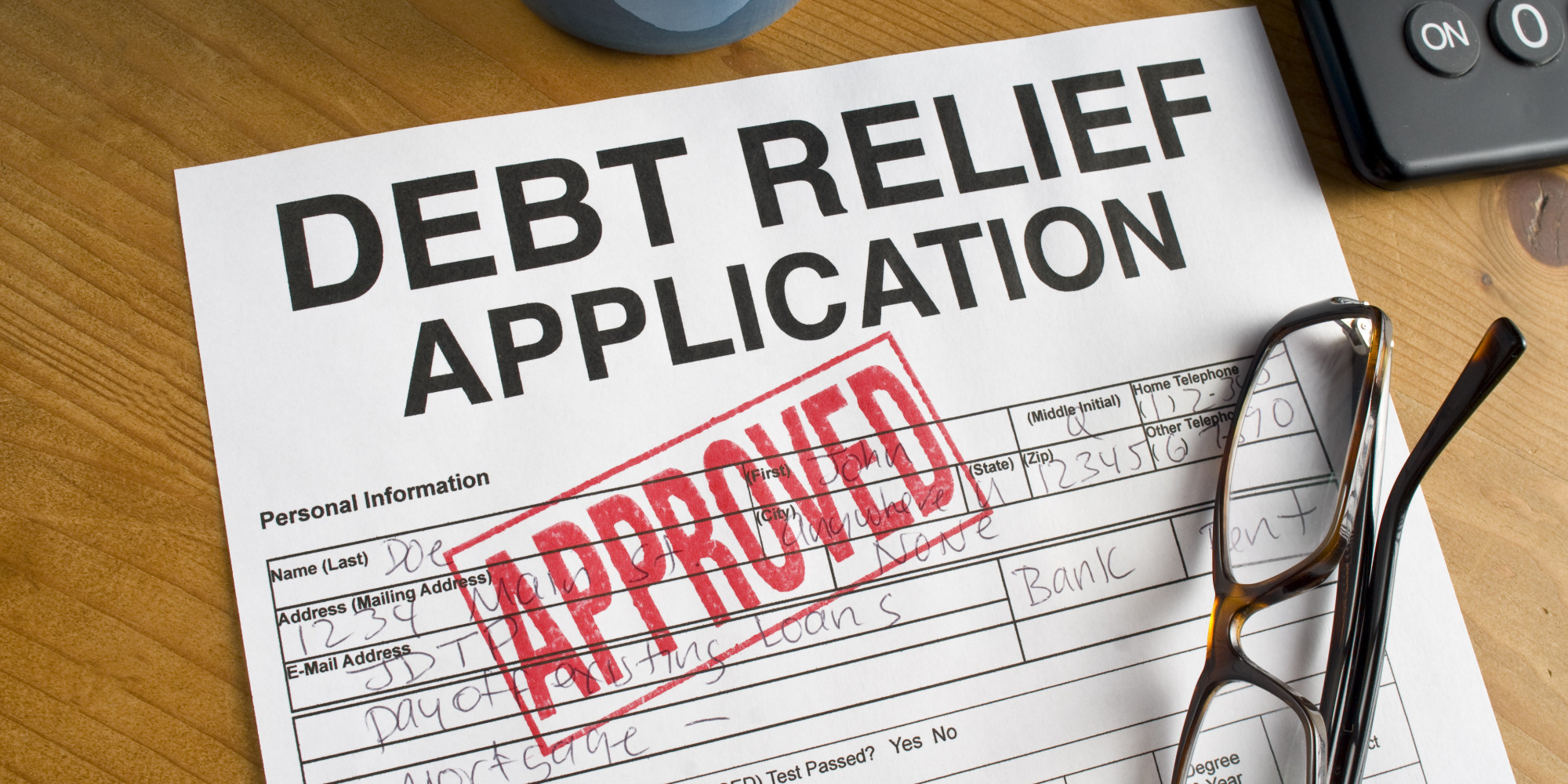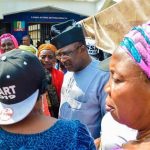Like most Nigerians I took the announcement that Nigeria has been offered a significant debt relief, as a major development, when it broke the other day. Of course, it was a major item of news for us when our editorial team met that evening. In fairness to the government and Obasanjo, a few of the international media outlets used the story in the same vein, that Nigeria has been given the relief. However, a few days later, the doubts about what has happened began to emerge. In the first place, Obasanjo had done a trumphalist nationwide broadcast about the relief he allegedly scored for the country. Then a pattern emerged in the press, which indicated an orchestrated campaign of ‘prettifying’ and spin; most of the commentators started using phrases like ‘Nobody can deny Obasanjo his triumph’ or words to the same effect. There were also the trends of eulogising the finance minister Mrs. Okonjo-Iweala, and the role she had played in getting the $18 billion dollar relief. Of course in a setting such as we have in Nigeria, Obasanjo and his spin experts needed to get one on all those who have criticised his increasing junketing around the world. The fact of a debt relief was therefore a perfect opportunity to show the result coming out of the much criticised travels around the world, especially Obasanjo’s annoying toadying to the leading politicians of the Western world. At a related but even more fundamental level, was the fact that a regime of debt relief and outright cancellations of debts had been announced for Heavily Indebted Poor Countries (HIPC) which left out Nigeria. Those announcements came at a time when members of the Nigerian government had given the impression that Nigeria’s debt relief was somewhere around the corner. So when the chest-beating triumphalism was unleashed by Obasanjo and his team, a lot of Nigerians were bought on the spin, and some of the commentators, including even our own Kabiru Yusuf, said that Obasanjo’s finest hour was here. The ‘finest hour’ also took in the validation of Obasanjo’ scontroversial re-election by the Supreme Court. It seemed the gods were smiling on Nigeria’s President. I have always had a critical attitude about the debt crisis from the beginning. In the first place, we all now know that Nigeria has paid many times over, the money that was borrowed in our name by successive, undemocratic regimes, beginning with the military dictatorship of General Olusegun Obasanjo in the 1970s. Yet as we also know, despite the huge amounts that we have paid so far, we were still owing about $35 billion. It was quite clear that these debts were not sustainable and in the final analysis, these monies can never be repaid. The underling truth was that the debt crisis played a far more important ideological role for the imperialist countries than even an economic one. These were debts that have no significant economic interests for them, but have become useful in rolling back the historical gains associated with the anti-colonial movement, the attainment of independence and the commencement of the building of an independent society in most of the underdeveloped countries. The imperialist countries saw an affront in the various campaigns during the nineteen seventies for a new international economic order within the international system that was constructed within the context of the Keynesian economic policies associated with the end of the Second World War. The ambience was one that permitted the developing countries to begin to construct the basic infrastructural platforms for national development. Such a desire for independence contradicts the purposes of imperialism. Those purposes were to retain us as the underdeveloped periphery of the capitalist world system; as markets for the industrial and consumer goods of their own countries; as reservoir of cheap labour and as producers of primary agricultural and mineral products. The ambitions of industrial development after independence meant that the elaborately constructed international exploitative capitalist order would then be put in jeopardy. Of course, the imperialist powers would not fold their arms and allow that to happen. This explains why the debt crises which emerged from the mid nineteen eighties became a useful weapon of control and the reversal of our independence. In the first place, a neoliberial regime associated with Milton Friedman and his disciples in the Chicago School of Economic Sciences, was let loose on the capitalist world. Their original laboratory was in Chile, after the fascist coup of September 11, 1973, led by Pinochet. To consolidate the new thinking, the Western world saw the emergence of the Reagan administration in the United States and Margaret Thatcher in Great Britain. The content of those times include the systematic attack on the social gains of the poor and the enhancement of the power and privileges of the rich. This process has continued with the neoliberal regimes all around the world. In Africa and the developing countries, using the crisis associated with the debt burden, Structural Adjustment Policies were imposed on our countries. And we are all witnesses of the effects of these policies on our country, Nigeria. These policies led to the emergence of the regimes of systematic roll back of the state in our lives; the privatisation of national assets; the devaluation of our currency and the related policies that have led to the crises associated with our existence under the military regimes, dating back from the implementation of the Structural Adjustment Policies of the Babangida regime, from 1986. So riding the wave of the debt burden, a complete mess was made of the sovereignty of Nigeria and all third world countries caught up in the trap of the debt crisis. This historical excursion has become necessary to place in context why I think the whole debt problem is such a monumental fraud. The regimes that sucked us into the morass also got our lives devalued and they made our sovereignty to become meaningless. But maybe this is the price that must be paid for accepting historical choice these regimes made. We all know how costly the choice is. Africa’s development has been retarded, especially from the mid nineteen eighties. Partly it is in an effort to show that he is making a difference away from the beaten path of despair that led Obasanjo to the chest-beating triumphalism which we saw on television the day he announced the debt relief. However, the truth, reading the statement pasted on the Paris Club website, seems to be that we have not been given the debt relief, just yet. “The representatives of the Paris Club countries met in Paris on June 29 2005 and expressed their readiness,” say the statement, “consistent with their national laws and regulations, to enter into negotiations with the Nigerian authorities in the months to come on a comprehensive debt treatment.” The statement further acknowledged Nigeria’s economic reform program as well as the willingness of the Nigerian government “to conclude a policy support instrument (PSI) as soon as this new instrument is approved by the board of the IMF, to pay all its arrears towards Paris Club creditors and to treat them equitably.” There follows a declaration of an intention about the Nigerian debts. “On this, basis,” the statement further underlined, “this debt treatment would include debt reduction up to Naples terms on eligible debts and a buy back at a market related discount on the remaining eligible debts after reduction. This agreement would be phased in relation with appropriate IMF review under PSI …. Paris Club creditors are ready to invite Nigeria to negotiate in Paris soon as it has concluded a policy support instrument with the IMF,” concludes the Paris Club statement. So stripped of subterfuge, its clear that while Nigeria’s debt is on the way to being relieved, we still have to make a lot more concessions to the international financial system to be able to achieve it. The most potently ominous is the increasingly dominant role which the IMF will play in our national life in the years to come. On the positive side of these matters, is that Nigeria could use the freed monies for investment in the development of national infrastructure. Even Obasanjo has stated an intention in that respect. I hope we would make a strategic choice to invest in a national railway system for example, because of the importance of an integrated, modern and efficient railways system in the opening up of a country as big as Nigeria. The colonial railway system was instituted as an instrument of exploitation of our resources and peoples by the British colonial government. But in spite of itself, that railway system was also a means to bring Nigerians together and they helped to take nationalist ideas around the country. It was those feelings that led to the development of the nationalist movement, and the emergence of an independent Nigeria. We can then fancy the role which a modern, efficient railway system, criss-crossing Nigeria, can do for our hopes for development today.\What is called for is a very creative turn of mind, and tonnes of patriotic fervour. Unfortunately, I don’t think the current fixation with the neoliberal doctrine of a private sector-led development can help to achieve the type of national development which Nigeria truly needs at this point in the twenty-first century. It is only the state that can make the type of strategic choices for massive investments that will make all the difference between development and underdevelopment. The private sector that is national is largely underdeveloped and weak; the alternative is to handover to foreign capitalist concerns, under the illusion that in a globalised regime of transnational capitalism, developing countries have no choice. I believe we do have a choice to decide that there are strategic values that we valorise in the interest of our own national development. There is no country in the world that has developed through a wholesale surrender to the dictates of market forces as we seem to have done, in the past few years. If we eventually get the debt relief, of course, we have made some progress. However, the entire infrastructure of a neo colonial political economy has to be re-engineered within the context of a deepening of the democratic process in the country. The people’s interest must be the uppermost concern of policy choices and economic development must be directed at strengthening the nation’s sovereignty. Any choice to the contrary, in my view, will not make the sacrifices the Nigerian people have made, under the excruciating debt management regime, worthwhile. So the winning of debt relief must be the beginning of a vigorous process of debate about the best directions to go so that Nigeria can truly begin to conquer underdevelopment. However, if the issues around us are a meaningful guide to action, one can only be pessimistic. Obasanjo says we cannot stop taking loans. Some of the loans they have taken include such bizarre loans as loans to retrench people from the civil service or others to service the process of the privatisation of our national assets. Of course these loans would accumulate again and might end up taking us back to square one, unless we are vigilant and can device a citizens’ innitiative to monitor the husbandry of the entire process. Nigerian people have a lot more to do now, than even before the debt relief process commenced.
DEBT RELIEF AND MATTERS ARISING


